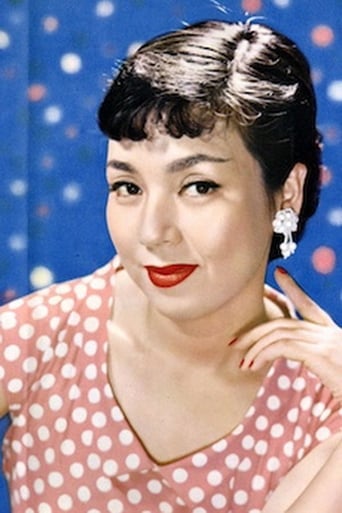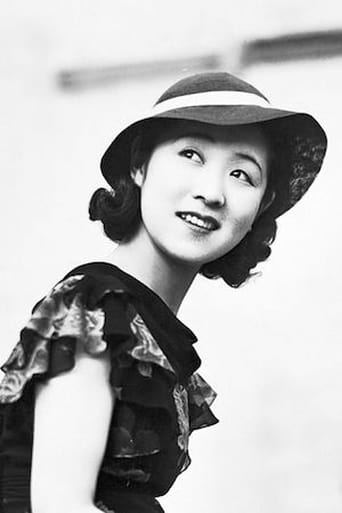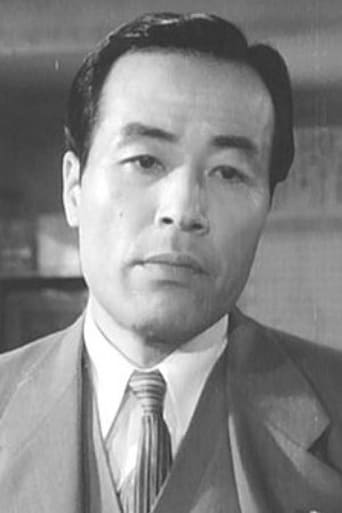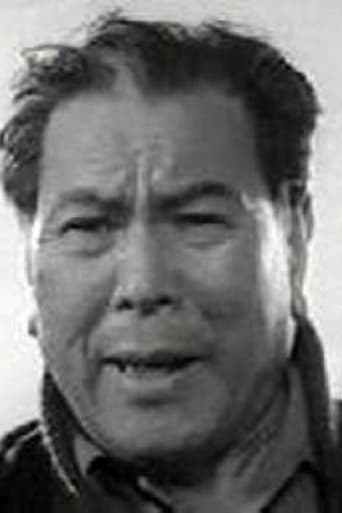Skunkyrate
Gripping story with well-crafted characters
Phonearl
Good start, but then it gets ruined
Dynamixor
The performances transcend the film's tropes, grounding it in characters that feel more complete than this subgenre often produces.
ChanFamous
I wanted to like it more than I actually did... But much of the humor totally escaped me and I walked out only mildly impressed.
thinbeach
Ugetsu is a moral tale that if you chase finance and status, as opposed to love and family, it will ruin both you and others. Genjuro and Tobei are two neighbours in a tiny village that make ceramics together. When their village is invaded by the army, they flee by boat across river, in order that their goods might be sold without losing profit, leaving their wives and children behind. By chance they both reach positions of power, Genjuro, due to his ceramic skills, finds favour with the Princess and weds her, while Tobei earns enough money to buy his way into the Samurai, before earning the high position of Chief when he falsely claims the kill of another man. It is quite pointed and melodramatic, but I enjoyed the trip back in time to a vastly different culture, even if the events themselves were not pleasant. The shadowy lighting, along with the spiritual elements of ghosts and dreams, effectively create an enchanting mood.
Jackson Booth-Millard
This Japanese film is one of many I found because it was featured in the book 1001 Movies You Must See Before You Die, and it was rated very highly by critics, so I was looking forward to sitting down and watching it, directed by Kenji Mizoguchi (The Story of the Last Chrysanthemums, Sansho Dayu). Basically set in the 16th century, in the farming village Nakanogō, on the shore of Lake Biwa in Ōmi Province, it is the beginning of Spring, during the period of the Japanese Civil Wars. Family man farmer and craftsman Genjurô (Masayuki Mori) travels to Nagahama, he plans to sell his wares and make a small fortune, he is joined by his neighbour Tobei (Eitarô Ozawa), who has a foolish dream to become a samurai, but he cannot afford the outfit. Genjurô and Tobei become greedy working together, manufacturing clay potteries, and selling the pieces to enrich themselves, but the army of the cruel Shibata Katsuie is invading their home village, Genjurô's wife Miyagi (Kinuyo Tanaka) and Tōbei's wife Ohama (Mitsuko Mito) are worried and warn their ambitious husbands. The village is looted, but the families flee and survive, Genjurô and Tobei decide to travel with them by boat to the city, however, following a pirate attack, Genjurô leaves Miyagi behind, promising to return in ten days. Genjurô, Tobei and Ohama make a good amount of money selling the pottery, but Tomei leaves his wife to buy the samurai outfit and seek fame and fortune. It is after presenting the severed head of an army general to a commander that Tobei is rewarded with armour, a mount, and a retinue, he returns looking for Ohama eager to show her, he is shocked to find she has been working in a brothel as a prostitute. Meanwhile female aristocrat Lady Wakasa (Machiko Kyô) shows an interest in the pottery, invites Genjurô to her mansion and tries to seduce him. In the end, Tobei throws his armour into a river and returns with Ohama to Nakanogō, while Genjurō had been dreaming of reuniting with Miyagi, but after returning to reality his neighbour tells him that his wife is dead, but her spirit assures him she will always be with him. I did my best to concentrate as much as possible, carefully reading the subtitles and keeping up with what was going, it was a fairly simple story of two peasants trying to support themselves and their families, but having consequences in doing so, specifically for their wives, there are some really good visuals, and the costumes are indeed impeccable, what I can remember, all in all it was an interesting period melodrama. It was nominated the Oscar for Best Costume Design. Very good!
elvircorhodzic
UGETSU is the war drama, which contains extremely strong symbolism and quite strange charm. It is likely that this contributed to a combination of a realistic war drama and spiritual fantasy. This movie is difficult to understand, and should give him time. I have endured to the end, and concluded that this movie is exotic masterpiece. Set in the province of Omi during the Azuchi-Momoyama period at the end of the 16th century. The protagonists are two poor peasants, who in spite of the civil war that rages around them are trying to gain fame and fortune, one such dealer and the other as a samurai, which will lead to tragic consequences for their wives and pull rage spirits. The film is dominated by long scenes and a whole wins and impressive atmosphere, as well as the effective use of excellent music and indescribable atmosphere and photography. It is a masterfully orchestrated, highly poetic, layered and visually impressive film. The film examines the infidelity, ambition and greed. As a crude awakening coming peace and satisfaction regardless of the situation. In the film's present strong affirmation of women's sacrifice and devotion to the family and thus criticism of egotistical male ambition, especially in a patriarchal society.Well,...this film shares some elements with Rashomon. Acting is emotional and intriguing. Music is magical and creepy at the same time. I'm thrilled. World! The world is very agitated and disturbed.
Michael Mendez
Now these are the type of films that give me a reason to critique work. In Kenji Mizoguchi's Ugestu, I was moved and tossed through a loop, but in the end it was definitely worth it.I am fascinated by the Japanese culture especially the different eras/periods that they went though. The title of the film is based on a book, two in fact, called "Tales of the Moon and Rain" (I am trying my best not to add any spoilers to this entry.)The film takes place in the 16th century Civil-War period. These were desperate times of survival, mostly for men who would have the main duty of protecting the family. The protagonist in this story, Genjûrô, has a wife and a child. They are in need of money and his pottery is beginning to sell very well on ACCOUNT of the war going on. It is when a group of bandits come into their small village and demand strict labor upon any man they can find. Luckily, Genjûrô's family gets away just in time. They set sail to a bigger town, so he can sell more of his crafts. To accompany him is a man named Tobei and his wife. Tobei is sort of the dimwitted character that needs a purpose. Though, everything he needs is right in from of him (a wife, friends, food, a decent job, etc.), he has a dream to one day be a samurai. This you can tell is not a good idea, since he is gullible and really bad with his savings. But at least he is helping Genjûrô and his family get by.It is when Genjûrô's wife has to stay back with the child so that they can travel more cautiously. There have been pirates lurking around and it was not necessary to risk it. In the town that Genjûrô, Tobei, and his wife sell the pottery, Genjûrô comes across a mysterious maiden with hikimayu eyebrows, Lady Wakasa, who invites him up to her secluded manor with her and her servant lady. This is probably where I should stop.The film definitely took me by surprise. I actually thought it was a horror flick at first. Either way, I was not disappointed to find out that is was a fantasy/drama/mystery. It kept me interested the whole way through. I would have to say my favorite character that goes through the change is simply Tobei. His aspiring hope for becoming a true man and brave warrior take a turn.. for whatever you want to look at it. I found him and his wife's story, which sort of breaks off from Genjûrô's in the middle, very touching and heartfelt.







